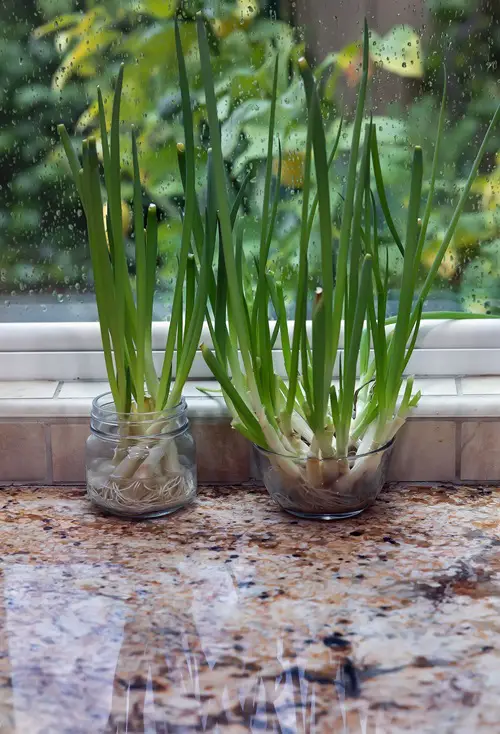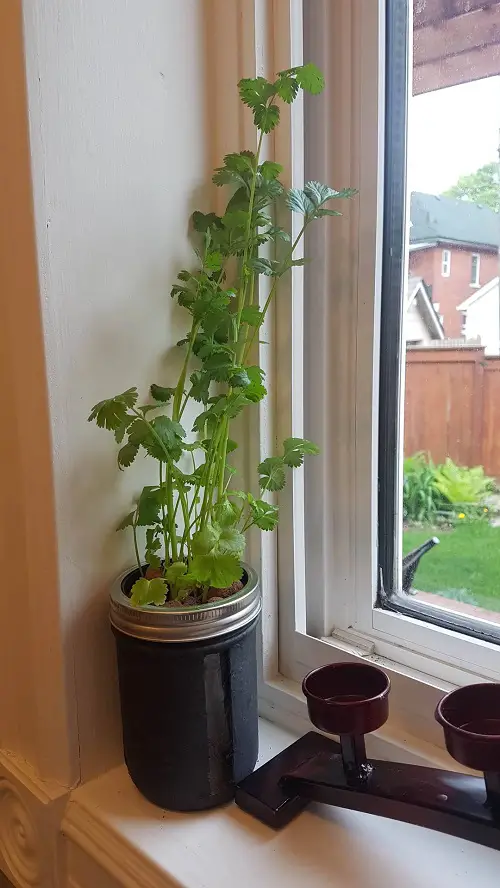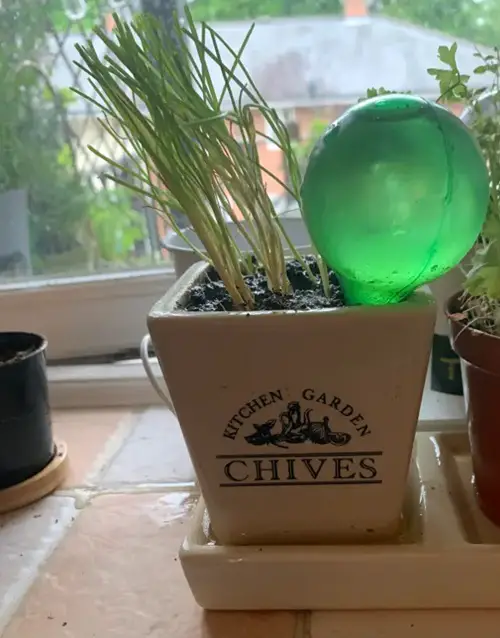Don’t let the cold weather stop you from growing plants! Here are the Best Indoor Herbs that Can Thrive on a Winter Windowsill.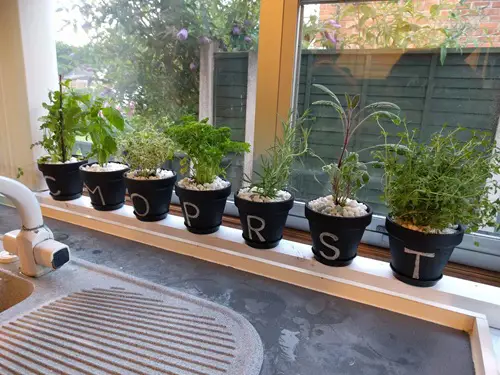
Planning to grow something in your room for the colder months? Here are the Best Indoor Herbs that Can Thrive on Winter Windowsill!
Growing Herbs Indoors on a Winter Windowsill
Before you plan to grow these best winter herbs on a windowsill, bear in mind that herbs, just like vegetables, LOVE sunlight. While some of them might not mind shade, most of them do.
It is essential to have a room with a window that allows some daylight–a bright windowsill or a closed balcony where you can keep the pots should be perfect. You must remember that sunlight is the main food for these plants, and it is essential that they get a minimum of 4 hours of bright sun every day.
If bright sunlight is a challenge, then you can also opt for full-spectrum fluorescent lights. They are much cheaper than commercial grow lights and will help the herbs to flourish.
Low Light Options for a Winter Windowsill
These two edible plants are great contenders for any spot that gets indirect light.
1. Ginger
Botanical Name: Zingiber officinale
Why Grow it: Add fresh leaves to soups and a variety of cuisines
All you need to do is get some ginger from a grocery store, cut it into small sections of 1 inch, make sure each slice has at least one growth bud, and then plant them in pots filled with a well-draining mix.
Water well, keep them on a windowsill that gets at least indirect light all day long, and soon you will see the rhizome sprout. These plants are pretty tolerant towards the colder months and grow like a champ.
2. Green Onions and Garlic Greens
Botanical Name: Allium cepa
Why Grow it: Add to soups or any recipe of your choice.
Green onions and garlic greens don’t mind a bit of cold, and if you keep them on a bright windowsill that gets some indirect light each day, they will do just fine.
To grow these bulbs, simply use a fork to create small holes in well-drained, fertile, loose soils and plant them.
Indoor Herbs that Can Thrive Moderate Light
By moderate light, we mean that these herbs will be happy in 3 hours of direct sunlight on a daily basis.
3. Parsley
Botanical Name: Petroselinum crispum
Why Grow it in Winter: Great for wintertime grilled vegetables, roasted potatoes, stews, and soups
This easy-to-grow herb can handle rooms with limited light very well. Place the pots near a window or glass door for the best growth.
If you already have parsley in a pot outside, then bring it indoors and place it near a sunny window before the frost. Remember, this herb requires moist but well-draining soils.
Also, try to avoid repotting the plant frequently as it does not like any disturbance in its taproot system.
4. Chives
Botanical Name: Allium schoenoprasum
Why Grow it in Winter: For a fresh dose in soups, dips, and seafood recipes
Chives will grow slowly but steadily all winter as long as they get a minimum of 3-4 hours of sunlight daily. Do remember to water it only when the topsoil goes dry.
If you have a large container like a windowbox, you can plant multiple of these herbs as they don’t mind mass-planting.
5. Mint
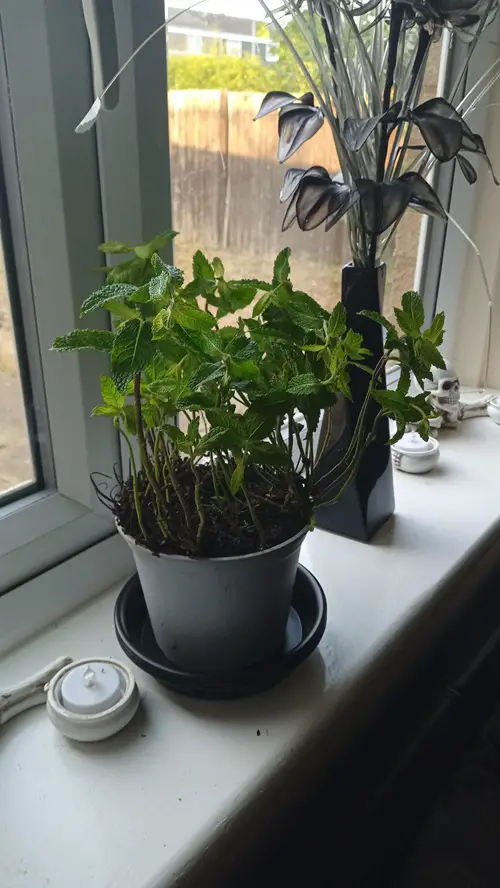
Botanical Name: Mentha
Why Grow it in Winter: For a warm cup of herbal tea and much more
No matter how harsh the winter is, it just cannot kill the mint plant as long as it is not exposed to the frost directly. Mulch the pot, keep it on a sunny windowsill, and watch it grow in the colder months.
A propagation characteristic you must know about this plant is that its square stems can root wherever they touch the growing medium, and it also spreads by rhizomes.
Indoor Herbs that Can Thrive in Good Sunlight
6. Rosemary
Botanical Name: Salvia rosmarinus
Why Grow it in Winter: Perfect for wintertime soups, stuffings, meats, and roasted vegetables
Keep Rosemary near a West or South facing window during winter time so it gets enough light. The plant also enjoys slight humidity as indoor air is quite dry during cold weather. Get the best tips to grow bushier Rosemary here if you’re growing it.
It’s not the best idea to grow this herb from seeds as it will sprout very slowly; instead, use cuttings or division as this plant can easily be propagated with a high chance of survival.
7. Sage
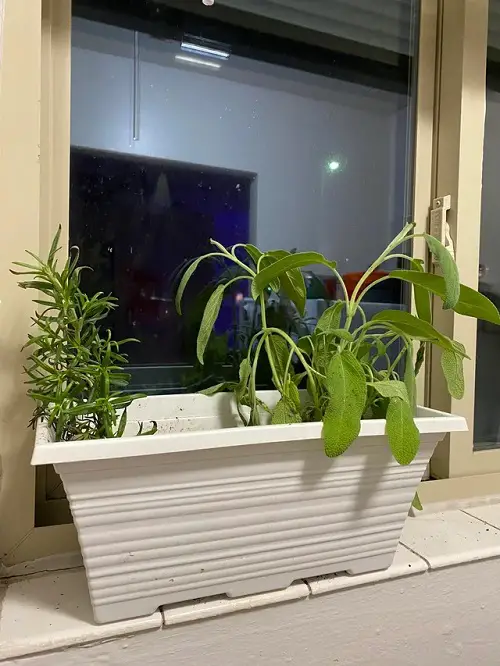
Botanical Name: Salvia officinalis
Why Grow it in Winter: Add it fresh in sausage, stuffings, and winter squash recipes
Growing sage indoors in winter months is easy as long as you have a sunny windowsill that can provide a minimum of 3-5 hours of direct sunlight daily.
Pruning is a must, especially in spring, to avoid this herb from becoming leggy. Also, if the plant grows too tall, stalking is required to help it maintain its stability.
8. Thyme
Botanical Name: Thymus vulgaris
Why Grow it in Winter: For stews, soups, eggs, and roasted vegetables
This Mediterranean herb does not like much watering when the weather is cold but favors a sunny spot, so place it on your south or west-facing sunny windowsill.
The best time to harvest thyme’s leaves is just before it flowers. They retain higher amounts of the flavorful essential oil, which increases the aroma of your dishes!



